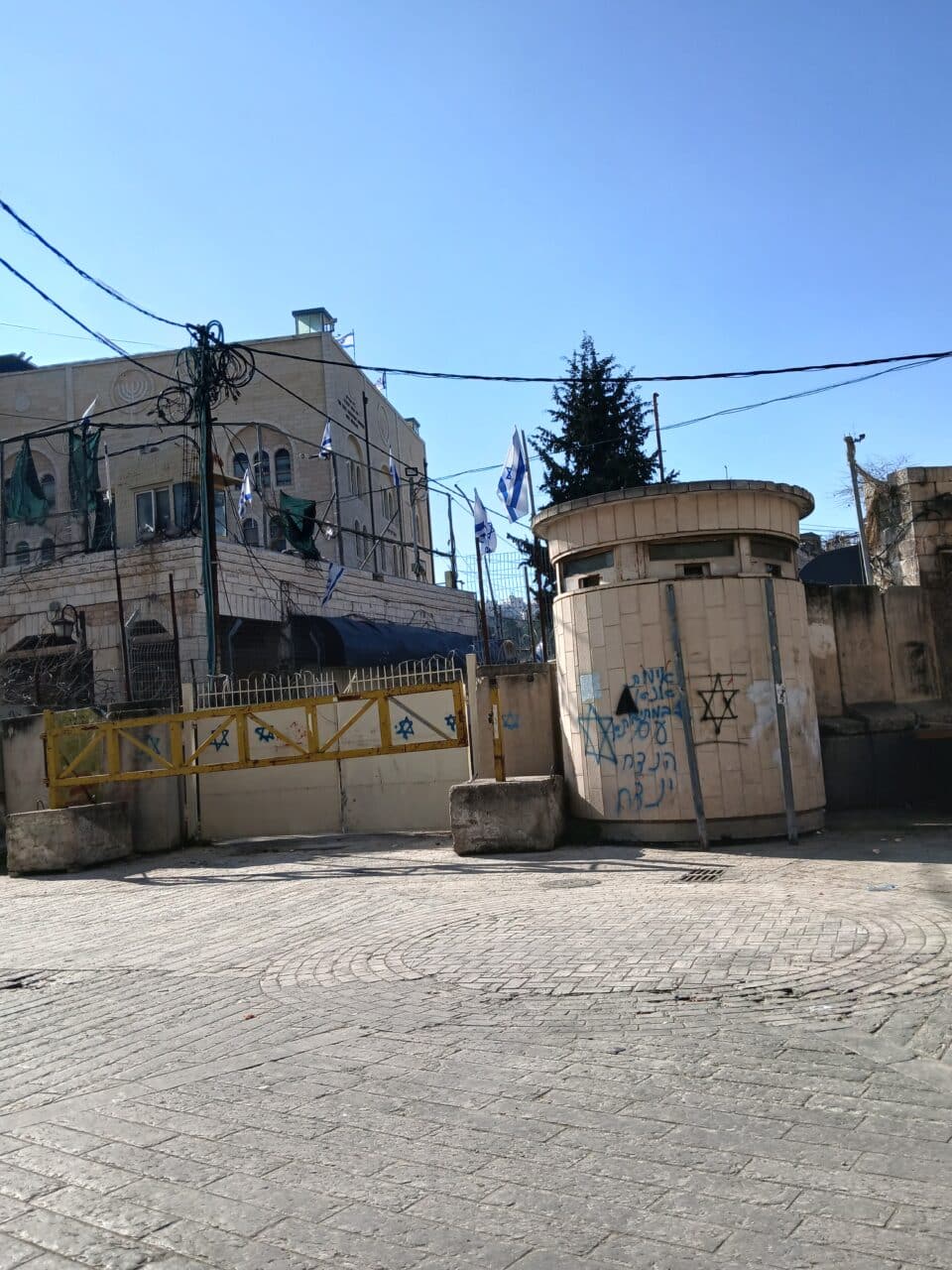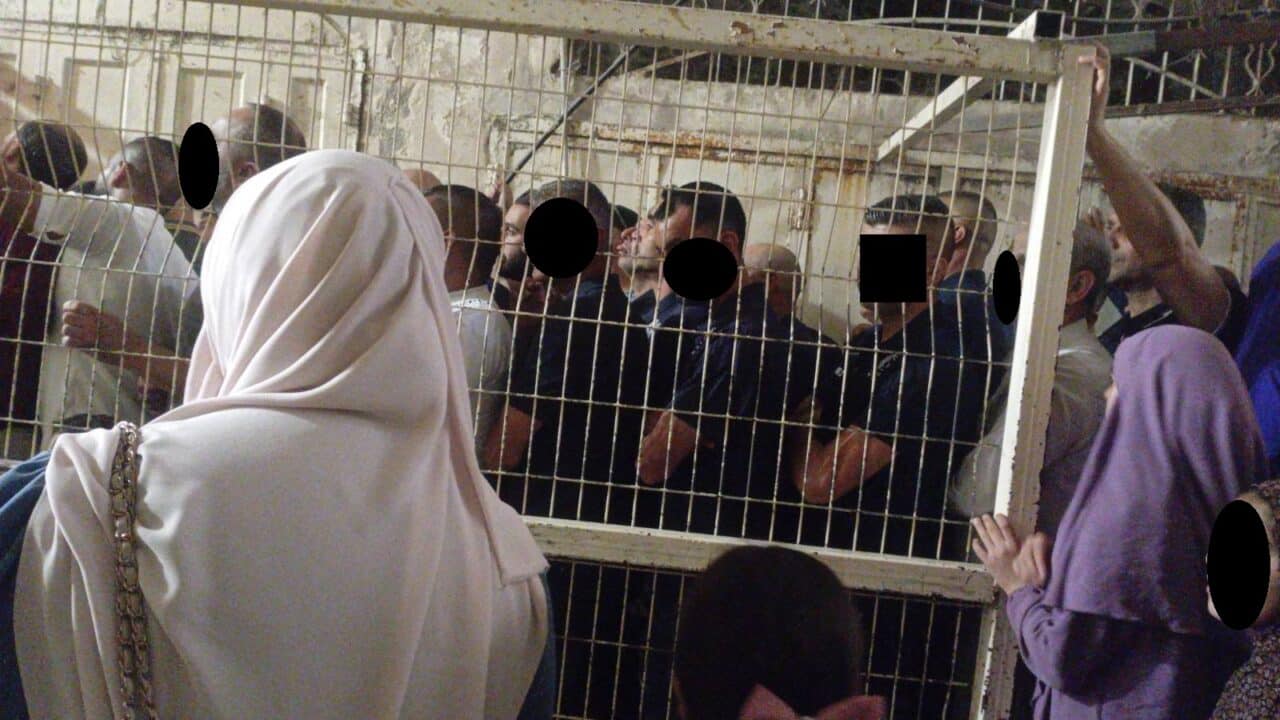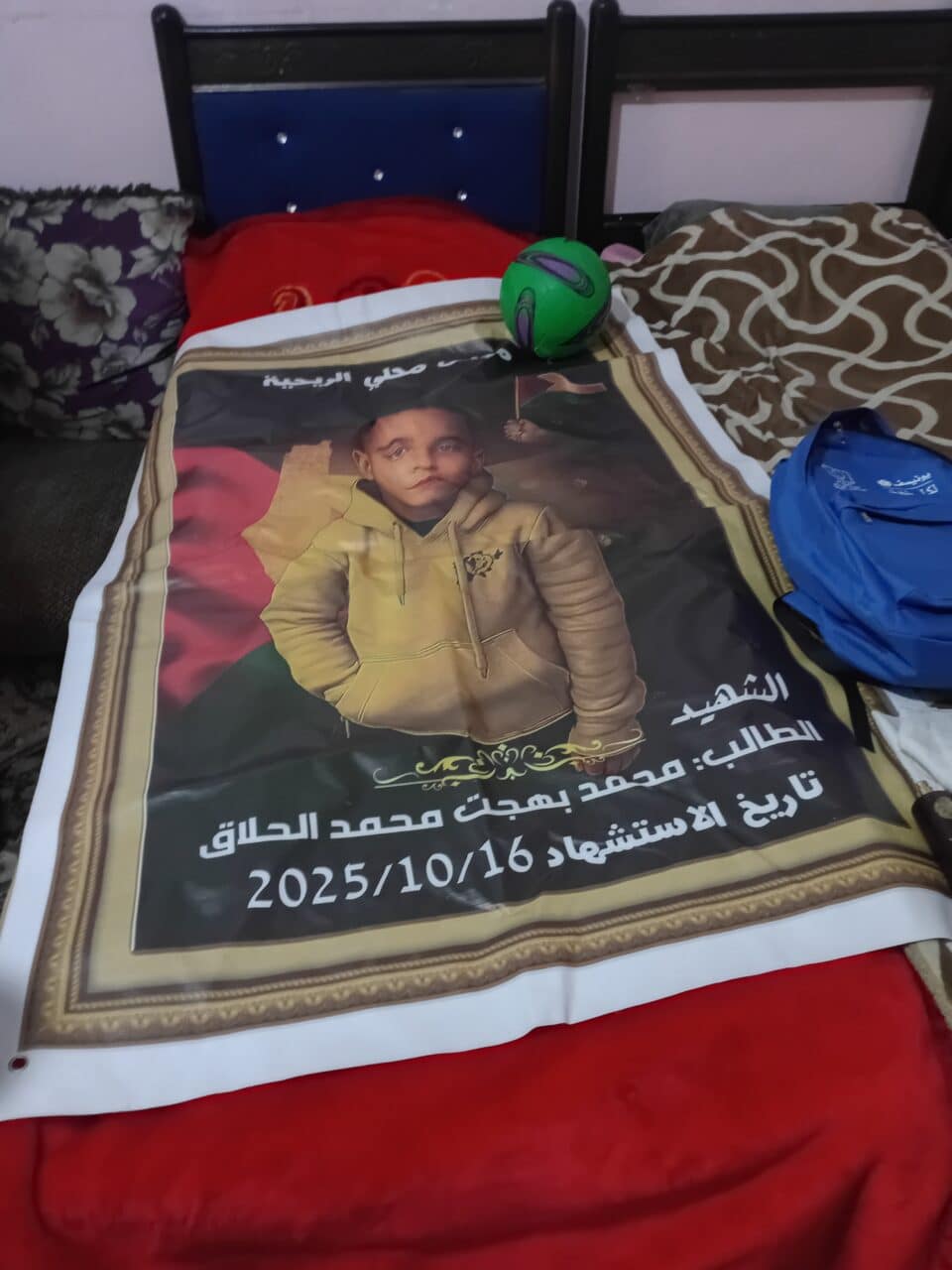Category: Hebron
-
Visual diary: a day in occupied Al Khalil
Friday, 26 December, 2025 Good evening from Al Khalil! It’s a really beautiful city, and has been suffering severely from the combination of colonization and lack of tourism post-Oct 7. Shop doors welded shut by the occupation to prevent Palestinians from making a living in the Old City, with layers of graffiti revealing resistance and…
-
Israeli Occupation Forces Deny Muslims Right to Pray
On Friday, October 24, the Israeli Occupation Forces (IOF) denied over 100 Palestinian Muslims the right to pray Duhr – or noon prayer – at the Al Ibrahimi Mosque in Al Khalil. Friday, or Juma’ah in Arabic, is the holiest day of the week in Islam. And Duhr is among the most popular times to…
-
Israel’s War on Children
On the evening of Thursday, October 16, we got word that Israel Occupation Forces (IOF) shot in the abdomen a nine-year-old boy in al-Rihiya. A small village close to Al Fawwar refugee camp, al-Rihiya is 4 miles outside of Al Khalil (Hebron). It was established in 1951 on 1 square km of land to house…



